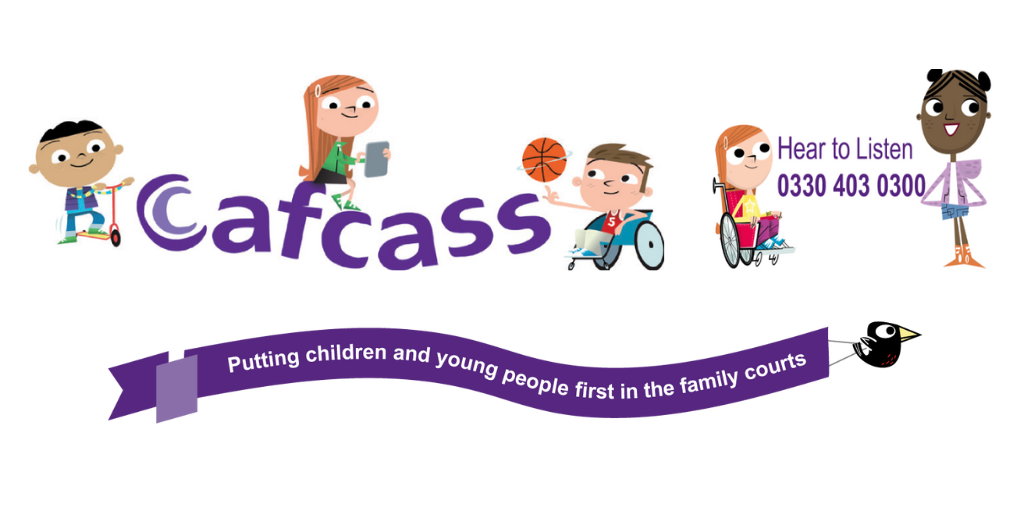CAFCASS – “Hear to Listen” a new telephone enquiry line for children

CAFCASS – “Hear to Listen” a new telephone enquiry line for children
Cafcass has launched a new dedicated telephone line for children and young people to share their feedback about the help and support they have had during their family court proceedings.
The “Hear to Listen” service will give children the opportunity to share their views about how well Cafcass supported them, how effectively they listened and understood what it was like for the child to go through court proceedings and how well their views were understood by the Family Court Adviser who makes recommendations in their report to the Court – influencing the outcome of the proceedings.
The objective is for Cafcass to hear from children and get their feedback on whether children were able to understand the thinking of the Cafcass officer, and whether children felt that they were able to influence proceedings which were about them.
Cafcass worked with the Family Justice Young People’s Board (FJYPB) to help develop an accessible and reassuring opportunity to learn from the experiences of children tangled in court proceedings.
How is it accessed?
Children can use the telephone to contact Cafcass, during or after their proceedings to provide feedback. If the proceedings are still in Court when a child contacts Cafcass, the call will be directed to their Family Court Adviser who will contact them directly to answer any questions and/or to explain what is happening within the proceedings.
The new telephone line does not change the process or opportunity for children to complain. Children’s complaints remain a priority for Cafcass and they are contacted within one working day if they complain and complaints are expected to be resolved within 10 working days.
When would children be involved?
Applications to the Court may include those in relation to the amount of time a child spends with one or both parents, prohibiting a parent from certain actions or asking the Court to assist on a specific issue where parents cannot come to an agreement. When these applications are made, the Court directs Cafcass to undertake assessments and interviews in order to produce a report and recommendations to the Court. Cafcass usually arranges for separate interviews with parents but will meet with the child(ren) as many times as they feel is necessary to be able to report fully.
When making applications under the Children Act 1989 to the Court, the Court’s paramount concern is the welfare of the child and will mark this against what is called “the welfare checklist”. This list includes:
- The ascertainable wishes and feelings of the child concerned (considered in the light of his age and understanding);
- Their physical, emotional and educational needs;
- The likely effect on them of any change in their circumstances;
- The age, sex, background and any characteristics of theirs which the court considers relevant;
- Any harm which they have suffered or is at risk of suffering;
- How capable each of the parents, and any other person in relation to whom the court considers the question to be relevant, is of meeting the child’s needs;
- The range of powers available to the court under the Children Act in the proceedings in question.
Once these factors have been fully assessed, the Court will be able to adjudicate on the matter before it and make a decision which is in the child’s best interests. The Cafcass report is a fundamental part of this process.
What applications can be made to the Court?
The applications which can be made to the Court include:
- Children Arrangements application – stipulates with whom a child is to live, spend time or otherwise have contact with, and where a child is to live, spend time or otherwise have contact with any person.
- Prohibited Steps application – this is a legally binding order that prohibits someone (usually a parent) from exercising some elements of their parental responsibility, for example when a parent does not agree with the child being relocated.
- Specific Issue application – this determines how a dispute over a child’s upbringing or wellbeing should be resolved. It is used for specific issues, such as decisions regarding the child’s name or education.
Keep children informed:
When making applications to Court for Orders such as those above, you have to consider that the children involved will ultimately end up speaking to strangers and being involved in a process which can be very unsettling to them. We would advise that you notify your children’s school of your intentions or indeed if you are on the receiving end of an application. The school can often act as a neutral point of contact for the child and you should encourage them to access pastoral care or their class teachers.
Subject to how old your children are and their level of maturity and understanding, you could suggest that they talk to Cafcass at any time, confidentially. Initially, lines for this service will be open from 9am – 5pm (Monday to Thursday), and 9am – 4:30pm (Fridays). Cafcass will review demand for the service and whether children would like the phones to be available at other times such as evenings and weekends. The telephone number for the service is 0330 403 0300.
However, you should be very careful not to discuss adult issues with the children or encourage the use of this service to gain an advantage in the proceedings, the allocated FCA from Cafcass can use the discussions they have with the child (ren) to inform their report.
Speak to our Family Law experts
For more information about the Court process, procedure and what applications can be made to the Court, please contact our specialist Children Law solicitors on 01895 207 882 or Sonal Parekh on sonal.parekh@ibblaw.co.uk
